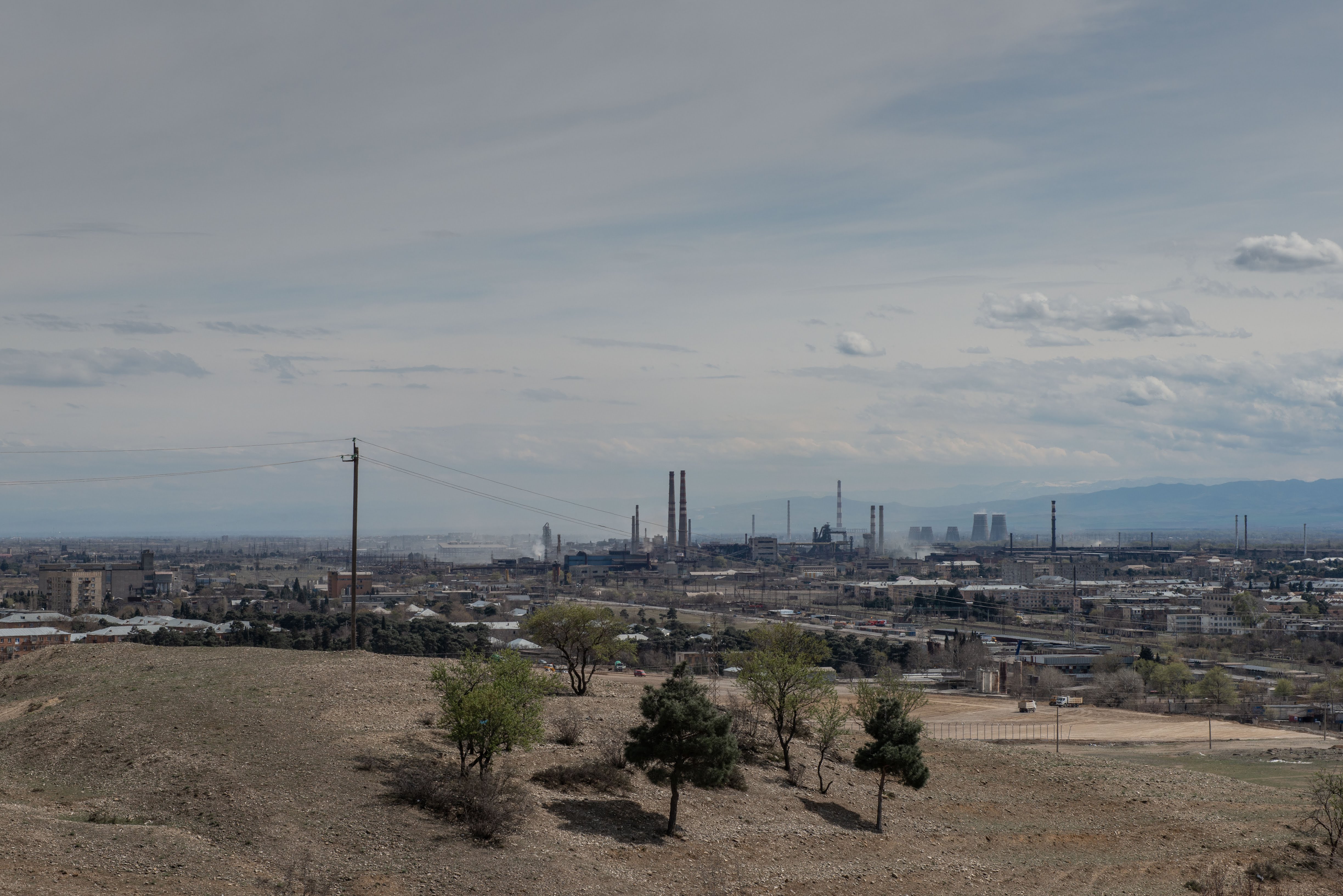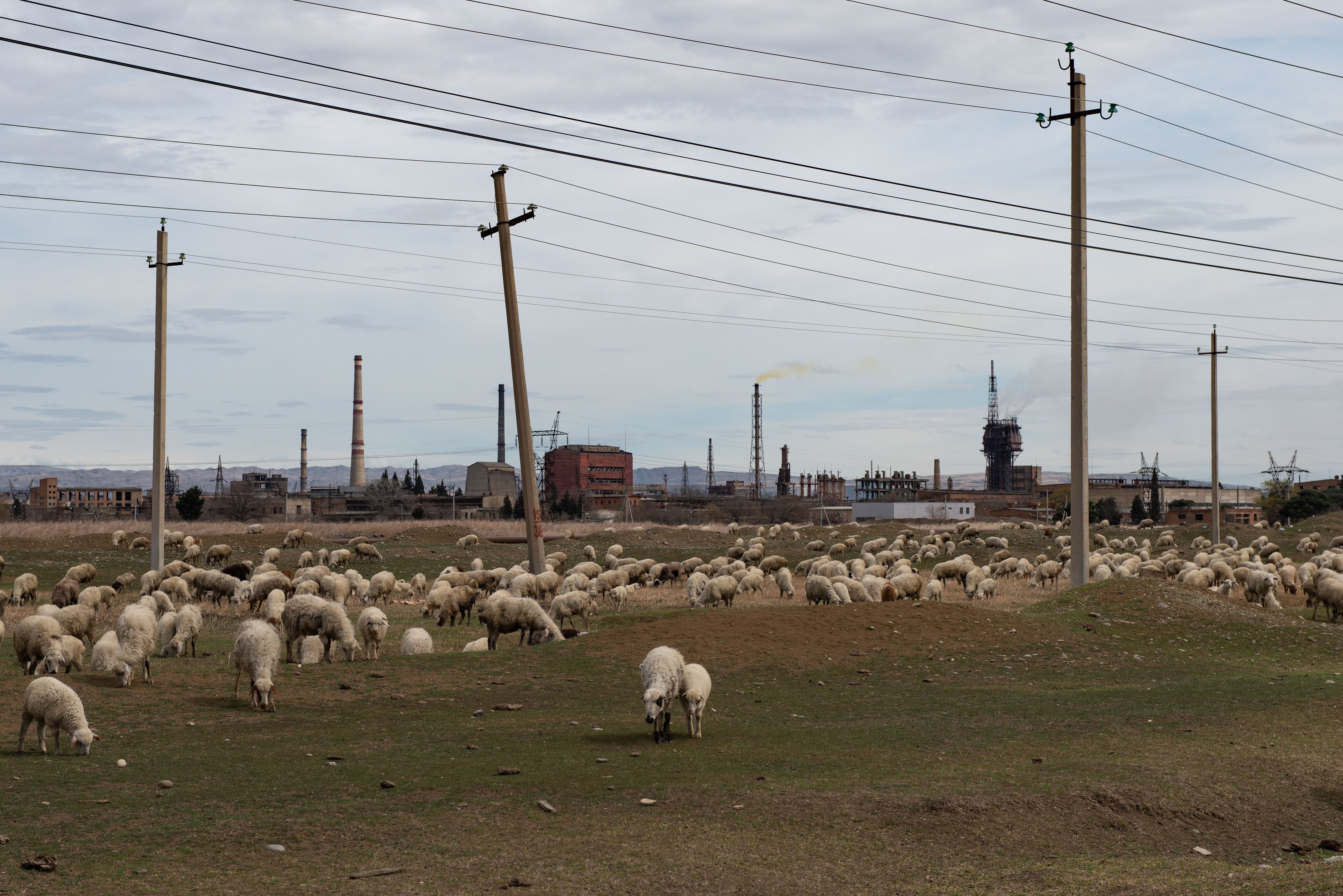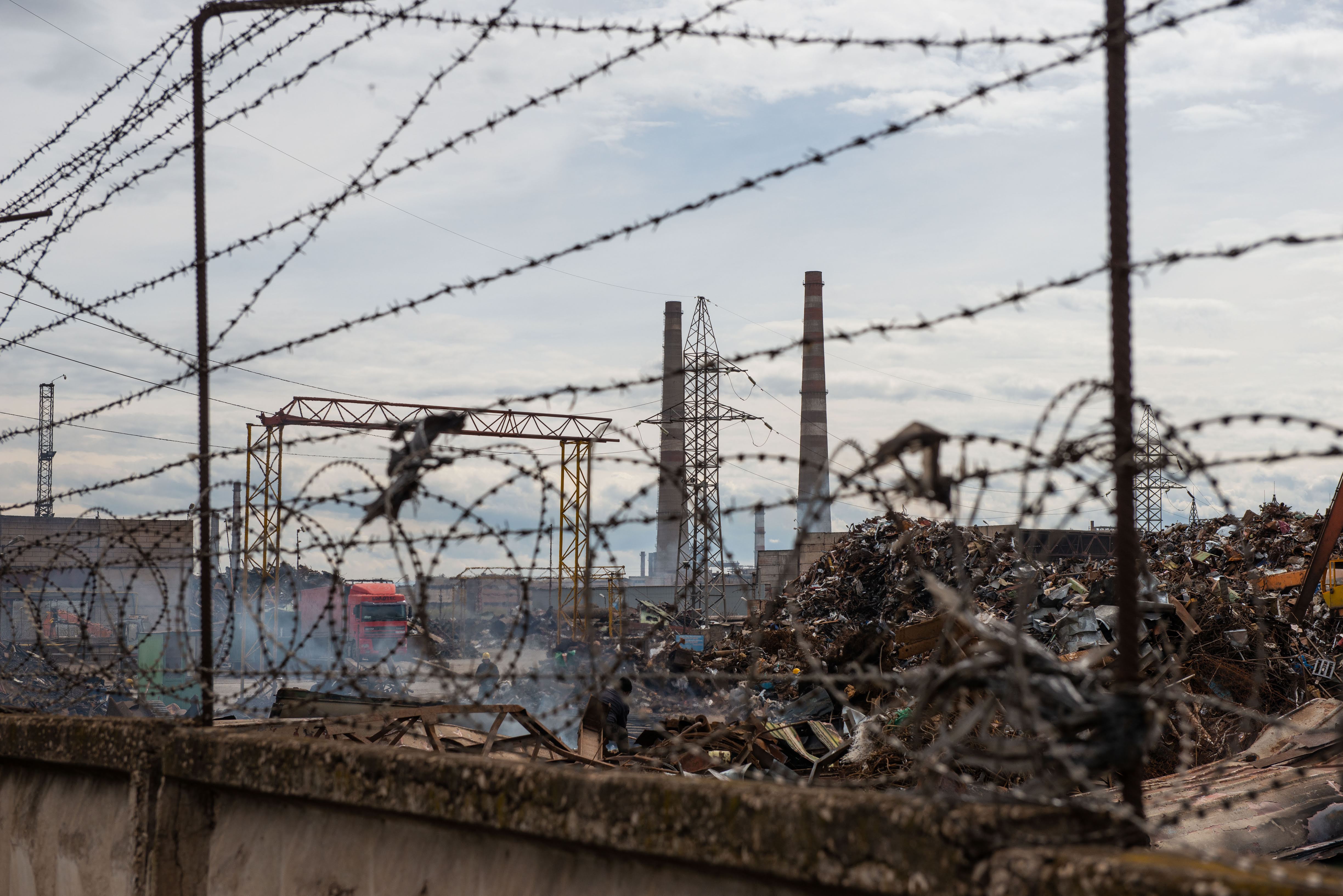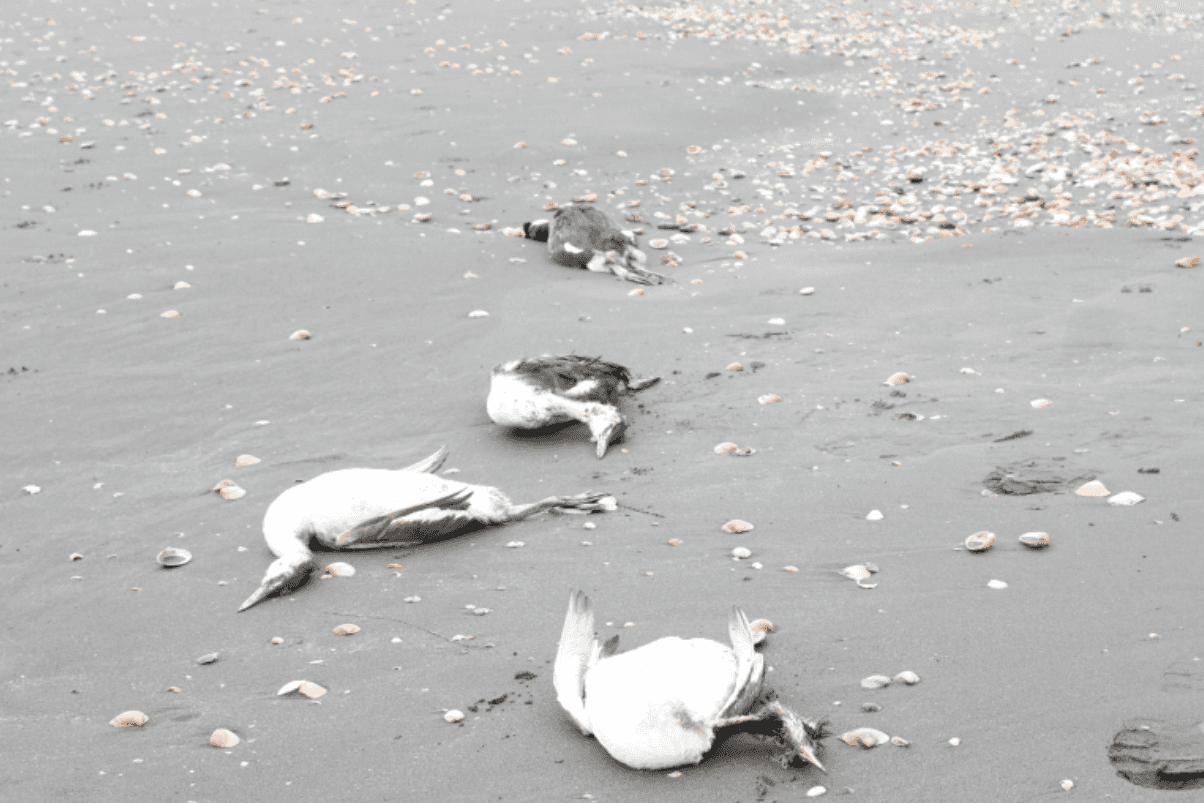
The former Soviet industrial centre of Rustavi has long been perceived as a city of factories. Spewing toxic fumes into their surroundings, the factories have led to ‘alarming’ levels of air pollution in the city — and local activists, backed by the city council, are getting fed up.
In the past, Rustavi’s numerous factories played an active role in the city’s development — they financed a stadium, organised cultural events, and sponsored various youth programmes.
Today, around 22 factories are dotted around the outskirts of old Rustavi belonging to private companies, often with foreign investment. Their social responsibility does not go beyond planting trees, many of which die quickly in the polluted environment.


In May, the government air quality measuring station in the centre of Rustavi recorded ‘alarming’ levels of particulate matter pollution. These fine particles, specifically PM10 and PM2.5, can pass into the lungs and are also more likely to stay in the air longer. The station also showed above-average rates of nitrogen dioxide, a toxic gas mainly produced by car exhausts.
The other six toxic agents that the station is measuring have so far stayed in the green zone. However, the station is not able to evaluate some harmful toxins such as benzol (C6H6) and lead. It is not able to monitor plastic pollution, or how protected workers in the factories are. It does not see where children play and what they are playing with.
[Read on OC Media: Lead: Georgia’s silent killer]



The closest factory to the city centre, GeoSteel, stands less than a kilometre away from the last house in the district; when the south-eastern wind blows, it brings with it toxic fumes from the plant. A major scrap metals processor, GeoSteel aims to expand — not away from the city, but towards it.


‘They’re building a silico-manganese factory on their site’, says Nika Museridze, an activist from local environmental movement Gavigudet (We are suffocating). The movement started in 2018 and aims to press the factories to fulfil their social responsibilities. The Rustavi City Council agrees with the activists; on 22 March, the council refused to consider the new factory unless the company’s administration presented a positive evaluation from the National Environmental Protection Agency.
Museridze says the council has been seeking help from activists: ‘I’ve been asked to make a noise, so they could press the companies more’.
At an informal meeting arranged by activists on 15 May, Rustavi’s mayor, Irakli Tabaghua, said that annual inspections were not enough and criticised the current legislation. GeoSteel has already been fined ₾5,000 ($1,850) twice by the council for dumping still-burning slag, a glass-like byproduct, on the side of the road.



Behind the factory’s walls, workers are not properly protected in day-to-day operations. Ani Katamadze, a former employee of GeoSteel, says there were only a limited number of helmets, not enough for everyone.
‘Many people worked in jeans jackets. I worked there for less than a month and two workers burned themselves during that time’, Katamadze told OC Media. She quit due to the low salary and concerns about her skin.
She added that some people were exposed to safety hazards far more than she had been. ‘There are people who live there — Indian workers. They’ve been brought from India by the company and never leave the factory.’








